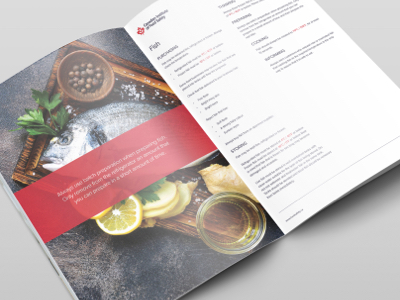
Food Handler training is an essential part of keeping food safe and ensuring that customers are served only the highest-quality food. But what exactly is Food Handler training, and what should every Food Handler know? In this blog post, we'll explore the basics of Food Handler training and the most important food safety and hygiene practices every Food Handler should know.
Overview of Food Handler Training in Canada
Food Handler training is an important part of ensuring safe food consumption, and Food Handler Certification is a legal requirement for most food workers in Canada because it provides individuals with the necessary skills and knowledge to safely handle, prepare and serve food. With proper Food Handler training, workers can be better equipped to detect and prevent potential hazards, protect food from contamination, and understand the importance of food safety.
Canadian Food Handler certification requirements vary from province to province, and the Canadian Institute of Food Safety is approved across all provinces. We have organized all the food safety education requirements by province in case you want to learn more about your specific location. It's important for Food Handlers to keep their certifications up to date in order to maintain the safety of customers, and to meet legal requirements.
Key Components of a Food Handler Training Program
A comprehensive Food Handler training program should include a detailed overview of the four key components necessary to provide safe handling, storage, preparation and serving of food:
- Food contamination and health hazards
- Cleaning and sanitizing
- Time and temperature control
- Safe food handling
Food Handler training is essential to help ensure that food that is served in Canada is safe and healthy for everyone. It's important that all people working with food know and understand the risks associated with handling food, and the potential effects of contamination. This is why training programs cover specific topics such as proper handwashing techniques, proper food storage and preparation methods, cleaning and sanitizing practices, and the importance of time and temperature control when serving food.
It's also critical that employees understand how to properly store and handle food items to prevent disease-causing microorganisms from contaminating food products. They must also be trained on how to identify signs of spoilage, and how to control contamination caused by chemicals or physical objects such as broken glass or metal.
In Canada, most Food Handlers require certification before working with food. Our Food Handler Certification course is approved across all Canadian provinces and territories, and includes all required topics including microorganisms and their effects on food, common food-borne illnesses, temperature control, cleaning and sanitation, personal hygiene and cross contamination.
Conclusion
Food Handler training is an important part of keeping food safe and ensuring customers are served only the highest-quality food. Every Food Handler should not only understand the basics of food safety and hygiene, but also strive to implement these safety practices in their daily workflow. With proper training and certification, every Food Handler can ensure they are meeting all legal requirements for their job, whilst ensuring that customers enjoy their meals in a safe and healthy environment.




